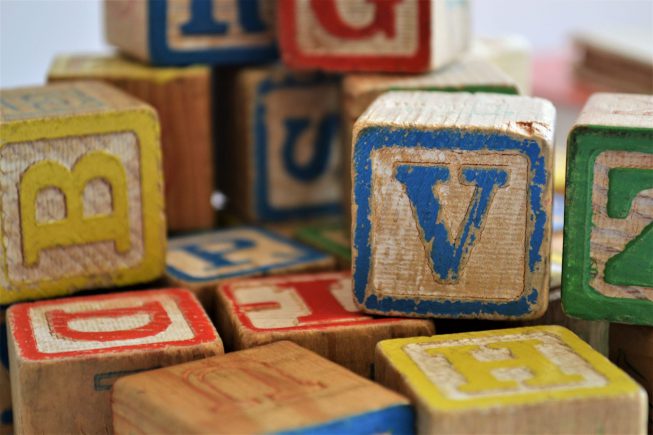Building Blocks for Learning

Adversity does not just happen to children, it happens inside them, through the biological mechanism of stress. It impacts health, behavior, and how they learn. For those familiar with toxic stress, it shouldn’t come as a surprise that a study published in Pediatrics earlier this month reports that kindergartners with multiple adverse childhood experiences have below-average math and literacy skills, attention problems, social problems and aggression. Here is one more compelling reason why our classrooms must be more responsive to trauma, stress and the developmental needs of all children.
We now know that chronic stress, when not buffered by a relationship with a trusted adult, affects the learning centers of the brain, compromising development of skills responsible for regulating emotions, impulse control, attention, memory, goal-setting and planning. The call for action coming from neuroscientific research has been loud and clear for many years. But the majority of our schools and classrooms do not prioritize building environments that provide physical and emotional safety, supports for students and trustful connections with adults. Many children of all ages come into school with a backpack full of adverse experiences. Too often, a school environment that should focus on buffering this stress and helping a student to concentrate and engage in learning instead becomes another source of stress, contributing to the challenges that student faces. And so many of our children can’t focus on learning.
Currently, the U.S. education system draws from a rigorous and well-developed set of academic standards for learning, which focus on what children should know and be able to do. However, success in the classroom and beyond relies on much more than mastery of these standards. If academic standards are what students need to learn, there are also skills and mindsets that prepare and support how students learn. Successful engagement in the classroom and in life relies on a set of cognitive and social-emotional skills and mindsets, which are not represented in academic standards. These have long been brushed aside as “soft skills” that are nice to have, but not the priority in our classrooms. Yet, science is demonstrating unequivocally that these skills and mindsets are requisite for learning and academic achievement. We will not achieve progress without a focus on this domain of student development. There is nothing soft about that.
At our organization, which works with schools serving high concentrations of students growing up in poverty, we wanted to know how children acquire the skills and mindsets essential for learning, which skills our students need to be successful in school, whether those skills can be taught and how much adversity interferes with healthy development? To answer these questions, we spent 18 months conducting a deep dive into a vast array of scientific research. What emerged is the Building Blocks for Learning white paper. It’s a framework for comprehensive student development, grounded in science, in service of equity. Aimed primarily at educators, academics and policy makers, the paper identifies teachable cognitive and social-emotional skills and mindsets that correlate to or even predict academic achievement. The framework suggests a developmental continuum that starts in early childhood but doesn’t’t stop there. It acknowledges that children don’t always get the same start in life and they don’t all follow the same smooth path through it. It makes the case that all children in K-12 need skills, including stress management, self-regulation, executive functions and growth mindset, and that we can’t just assume they are in place when they enter kindergarten. In fact, we must teach them, particularly to children whose healthy development has been interrupted by their experiences with adversity, including hunger, homelessness, abuse, neglect and violence.
Opportunities to implement a more comprehensive approach to student development are right in front of us. The Every Student Succeeds Act (ESSA), signed into law in December, requires states to expand the definition of student success beyond academics by using at least one “nonacademic” indicator, such as school climate or student mindset, to measure school success. While there are challenges to measuring many cognitive and social-emotional skills and mindsets, collaboration between researchers with expertise in measurement and educators with expertise in practice will move us in the right direction.
In the meantime, teachers across K-12 eager to begin instilling these skills in their students now, can start with any number of strategies, including this one which helps build attachment and trust, the cornerstone of the Building Blocks framework: it is called 2×10. Here’s how it works: Choose a student who has been difficult to connect with and spend 2 minutes every day for the next 10 school days one on one with that child, with no distractions. There is no need for an agenda, just the willingness to talk and listen about something that interests the student. See if this strategy helps with understanding this student better and if the teacher-student relationship improves as a result. And if, as we suspect, you know an educator who already has some terrific strategies for building the skills and mindsets that are prerequisites for success in school and in life, let us know. We would love to share them with the teachers we coach. Together, we can put many more children on a path to healthy development, academic achievement and opportunity.
About Turnaround for Children
Turnaround for Children is a member of the America Forward Coalition and is dedicated to the idea that one day, all children in the United States will attend schools that prepare them for the lives they choose. Turnaround acts as a catalyst for change by raising awareness about and addressing the challenges that affect any school facing adversity, particularly those in high-poverty communities. Turnaround develops tools and strategies, grounded in science, that cultivate a safe environment, reduce stress, increase readiness to learn and accelerate healthy student development and academic achievement.
